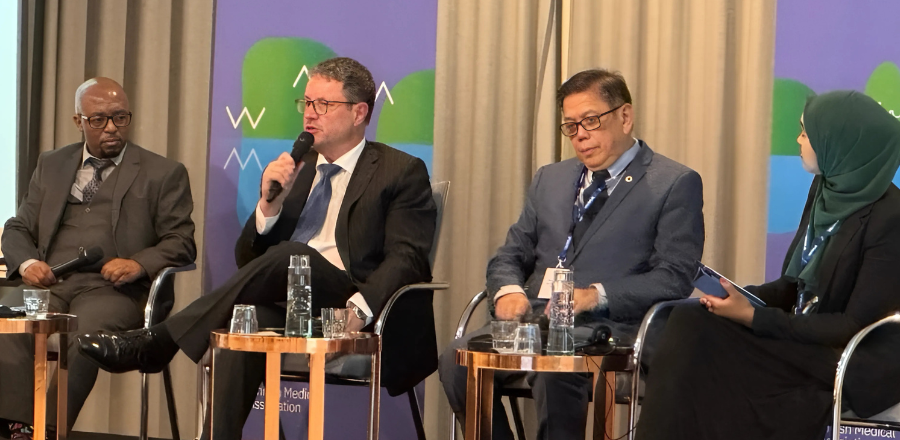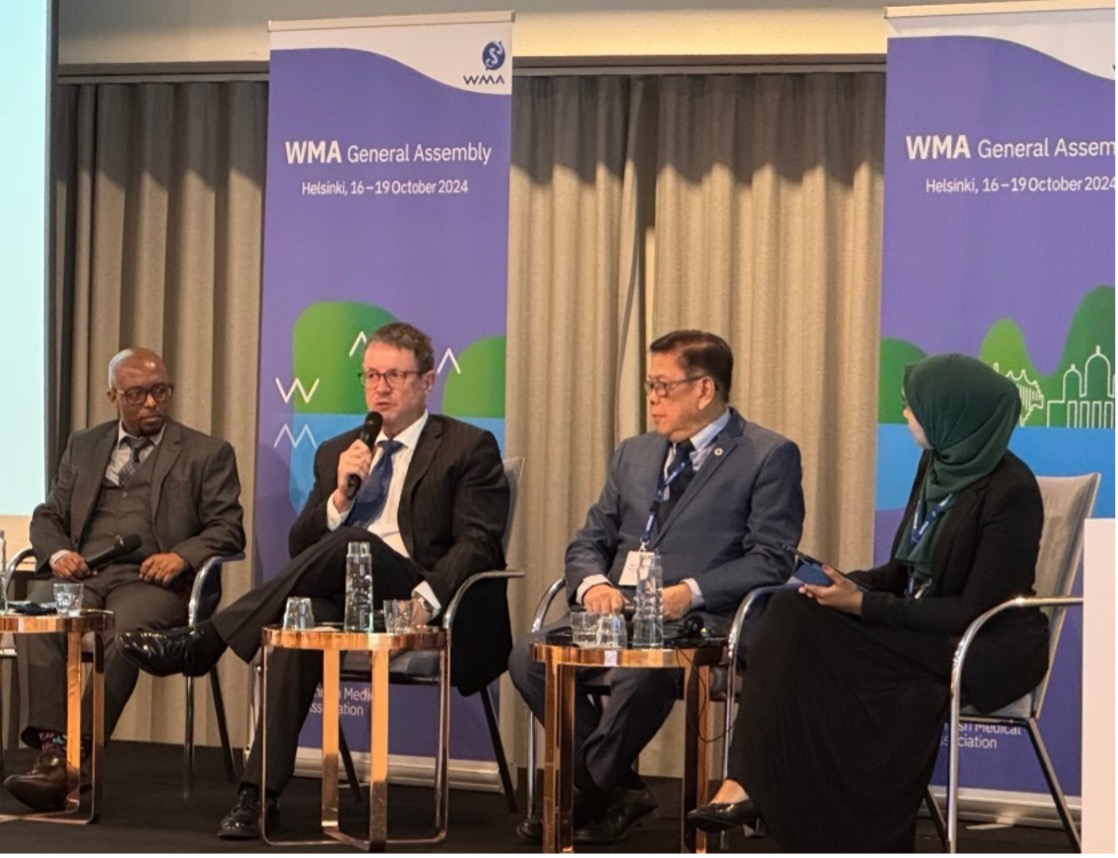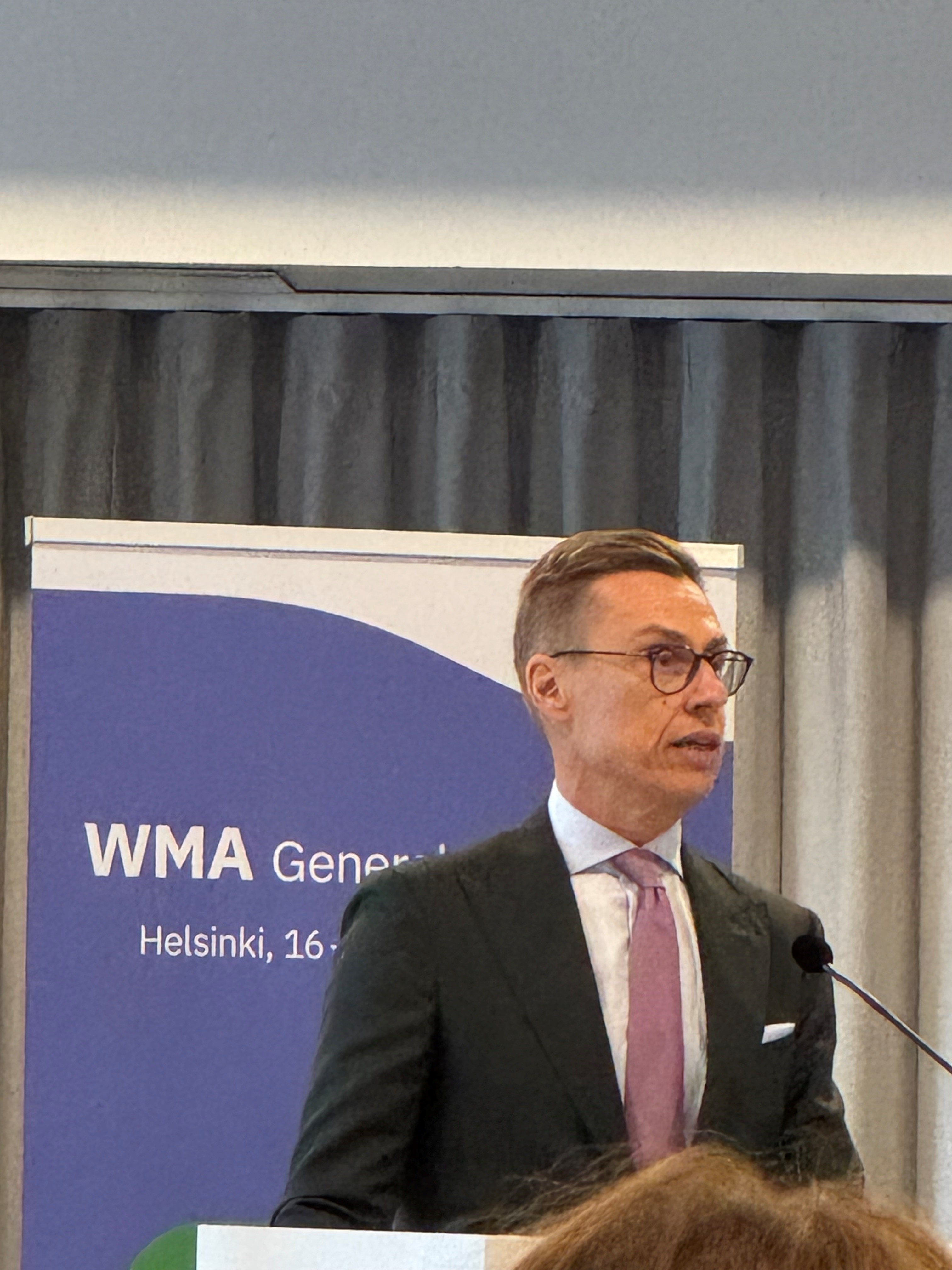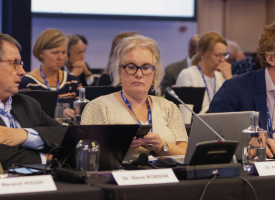Report from the World Medical Association General Assembly, Helsinki, Finland
Professor Steve Robson was in Helsinki recently for the World Medical Association General Assembly. Here is an update on the event.

AMA Immediate Past President, Professor Steve Robson, attended the World Medical Association General Assembly in Helsinki last week. With a membership of 114 National Medical Associations, the WMA represents the interests of more than ten million doctors globally and has close working relationships with bodies such as the World Health Organization and the United Nations.
The AMA is an active member of the WMA, with representation on the WMA Council, Finance and Planning Committee and Medical Ethics Committee, as well as regular participation on a range of WMA Working Groups, most recently groups revising WMA policies on HPV vaccination, pandemics and epidemics as well as organ procurement.
At the WMA’s recent General Assembly, Prof Robson participated in the WMA’s Scientific Session, discussing ways to mitigate the effects of climate change in health inequalities.
A number of key issues were also discussed at the General Assembly but two were of special significance for Australian doctors.
The first important issue is the adoption of the revised Declaration of Helsinki. First adopted at the 18th WMA General Assembly in Helsinki in 1964, it is the foremost statement of principles governing the conduct of medical research involving human participants. Following several years of global expert and public consultation, the revised Declaration was passed unanimously at the General Assembly, providing new guidance on issues ranging from the use of biobanks and ‘big data’ to artificial intelligence and managing research misconduct.
The second deals with the international migration of doctors. In a time of global health workforce crisis, international movement of doctors is a key issue. In Australia, the AMA is currently working closely with the government on potential changes on the governance of recruitment of overseas-trained doctors. The WMA’s Statement on Ethical Guidelines for the International Migration of Health Workers aims to provide consensus guidance at a global level. This guidance is critical to avoid destabilisation of already-fragile healthcare systems and to protect doctors from exploitation. The AMA has been chosen as the group to lead a revision of this critical global guideline, building an international consensus that puts doctors at its heart. Professor Steve Robson will head up the AMA’s role as rapporteur for this body of work.
In addition to these issues, a number of other important WMA policies were adopted, addressing a wide range of issues including the ethical use of medical technology, prevention and reduction of air pollution, assisted reproductive technologies, epidemics and pandemics, HPV vaccination, anti-LGBTQ legislation, organ donation in prisoners, plastics and health and the protection of healthcare in Israel and Gaza.






